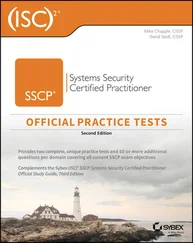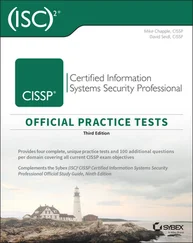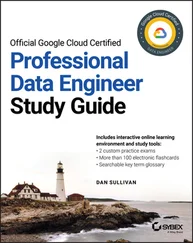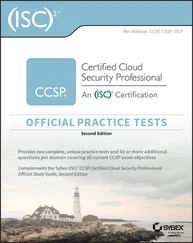In some cases, conflicts arise between laws of different nations. For example, electronic discovery rules in the United States might require the production of evidence that is protected under GDPR. In those cases, privacy professionals should consult with attorneys to identify an appropriate course of action.
 The Asia-Pacific Economic Cooperation (APEC) publishes a privacy framework that incorporates many standard privacy practices, such as preventing harm, notice, consent, security, and accountability. This framework is used to promote the smooth cross-border flow of information between APEC member nations.
The Asia-Pacific Economic Cooperation (APEC) publishes a privacy framework that incorporates many standard privacy practices, such as preventing harm, notice, consent, security, and accountability. This framework is used to promote the smooth cross-border flow of information between APEC member nations.
Canadian law affects the processing of personal information related to Canadian residents. Chief among these, the Personal Information Protection and Electronic Documents Act (PIPEDA) is a national-level law that restricts how commercial businesses may collect, use, and disclose personal information.
Generally speaking, PIPEDA covers information about an individual that is identifiable to that individual. The Canadian government provides the following examples of information covered by PIPEDA:
Race, national, or ethnic origin
Religion
Age
Marital status
Medical, education, or employment history
Financial information
DNA
Identifying numbers
Employee performance records
The law excludes information that does not fit the definition of personal information, including the following examples provided by the Information Commissioner of Canada:
Information that is not about an individual, because the connection with a person is too weak or far-removed
Information about an organization such as a business
Information that has been rendered anonymous, as long as it is not possible to link that data back to an identifiable person
Certain information about public servants such as their name, position, and title
A person's business contact information that an organization collects, uses, or discloses for the sole purpose of communicating with that person in relation to their employment, business, or profession
PIPEDA may also be superseded by province-specific laws that are deemed substantially similar to PIPEDA. These laws currently exist in Alberta, British Columbia, and Quebec. PIPEDA generally does not apply to nonprofit organizations, municipalities, universities, schools, and hospitals.
In addition to the federal and international laws affecting the privacy and security of information, organizations must be aware of the laws passed by states, provinces, and other jurisdictions where they do business. As with the data breach notification laws discussed earlier in this chapter, states often lead the way in creating privacy regulations that spread across the country and may eventually serve as the model for federal law.
The California Consumer Privacy Act (CCPA) is an excellent example of this principle in action. California passed this sweeping privacy law in 2018, modeling it after the European Union's GDPR. Provisions of the law went into effect in 2020, providing consumers with the following:
The right to know what information businesses are collecting about them and how the organization uses and shares that information
The right to be forgotten, allowing consumers to request that the organization delete their personal information, in some circumstances
The right to opt out of the sale of their personal information
The right to exercise their privacy rights without fear of discrimination or retaliation for their use
 It is quite likely that other states will follow California's model and introduce their own broad privacy laws in the next few years. This is an important area of focus that cybersecurity professionals should monitor.
It is quite likely that other states will follow California's model and introduce their own broad privacy laws in the next few years. This is an important area of focus that cybersecurity professionals should monitor.
Over the past decade, the regulatory environment governing information security has grown increasingly complex. Organizations may find themselves subject to a wide variety of laws (many of which were outlined earlier in this chapter) and regulations imposed by regulatory agencies or contractual obligations.
 Real World Scenario
Real World Scenario
Payment Card Industry Data Security Standard
The Payment Card Industry Data Security Standard (PCI DSS) is an excellent example of a compliance requirement that is not dictated by law but by contractual obligation. PCI DSS governs the security of credit card information and is enforced through the terms of a merchant agreement between a business that accepts credit cards and the bank that processes the business's transactions.
PCI DSS has 12 main requirements.
Install and maintain a firewall configuration to protect cardholder data.
Do not use vendor-supplied defaults for system passwords and other security parameters.
Protect stored cardholder data.
Encrypt transmission of cardholder data across open, public networks.
Protect all systems against malware and regularly update antivirus software or programs.
Develop and maintain secure systems and applications.
Restrict access to cardholder data by business need-to-know.
Identify and authenticate access to system components.
Restrict physical access to cardholder data.
Track and monitor all access to network resources and cardholder data.
Regularly test security systems and processes.
Maintain a policy that addresses information security for all personnel.
Each of these requirements is spelled out in detail in the full PCI DSS standard, which can be found at pcisecuritystandards.org. Organizations subject to PCI DSS may be required to conduct annual compliance assessments, depending on the number of transactions they process and their history of cybersecurity breaches.
Dealing with the many overlapping, and sometimes contradictory, compliance requirements facing an organization requires careful planning. Many organizations employ full-time IT compliance staff responsible for tracking the regulatory environment, monitoring controls to ensure ongoing compliance, facilitating compliance audits, and meeting the organization's compliance reporting obligations.
 Organizations that are not merchants but that store, process, or transmit credit card information on behalf of merchants must also comply with PCI DSS. For example, the requirements apply to shared hosting providers who must protect the cardholder data environment.
Organizations that are not merchants but that store, process, or transmit credit card information on behalf of merchants must also comply with PCI DSS. For example, the requirements apply to shared hosting providers who must protect the cardholder data environment.
Organizations may be subject to compliance audits, either by their standard internal and external auditors or by regulators or their agents. For example, an organization's financial auditors may conduct an IT controls audit designed to ensure that the information security controls for an organization's financial systems are sufficient to ensure compliance with the Sarbanes–Oxley Act (SOX). Some regulations, such as PCI DSS, may require the organization to retain approved independent auditors to verify controls and provide a report directly to regulators.
Читать дальше
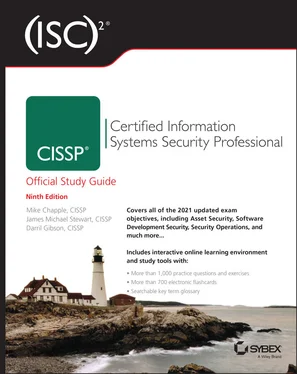
 The Asia-Pacific Economic Cooperation (APEC) publishes a privacy framework that incorporates many standard privacy practices, such as preventing harm, notice, consent, security, and accountability. This framework is used to promote the smooth cross-border flow of information between APEC member nations.
The Asia-Pacific Economic Cooperation (APEC) publishes a privacy framework that incorporates many standard privacy practices, such as preventing harm, notice, consent, security, and accountability. This framework is used to promote the smooth cross-border flow of information between APEC member nations. It is quite likely that other states will follow California's model and introduce their own broad privacy laws in the next few years. This is an important area of focus that cybersecurity professionals should monitor.
It is quite likely that other states will follow California's model and introduce their own broad privacy laws in the next few years. This is an important area of focus that cybersecurity professionals should monitor. Real World Scenario
Real World Scenario Organizations that are not merchants but that store, process, or transmit credit card information on behalf of merchants must also comply with PCI DSS. For example, the requirements apply to shared hosting providers who must protect the cardholder data environment.
Organizations that are not merchants but that store, process, or transmit credit card information on behalf of merchants must also comply with PCI DSS. For example, the requirements apply to shared hosting providers who must protect the cardholder data environment.


